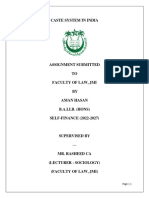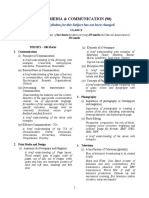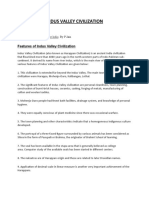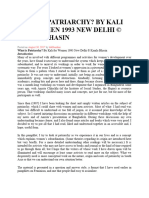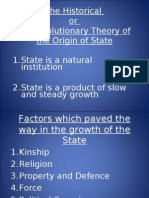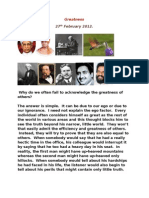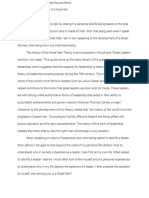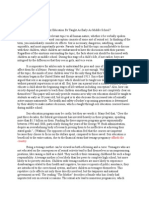100% found this document useful (1 vote)
2K views4 pagesWho Can Be Called A Great Man? Dr. B. R. Ambedkar Military Heroes and Their Impact
Dr. B.R. Ambedkar explores the concept of greatness, contrasting military heroes with non-military figures and examining various criteria for greatness proposed by thinkers like Carlyle and Rosebery. He argues that true greatness requires a combination of sincerity, intellect, and a commitment to social purpose, distinguishing a great man from merely an eminent individual. Ultimately, Ambedkar critiques existing tests of greatness as incomplete, emphasizing the need for a holistic understanding of what it means to be truly great.
Uploaded by
prajwalraga.rCopyright
© © All Rights Reserved
We take content rights seriously. If you suspect this is your content, claim it here.
Available Formats
Download as PDF, TXT or read online on Scribd
100% found this document useful (1 vote)
2K views4 pagesWho Can Be Called A Great Man? Dr. B. R. Ambedkar Military Heroes and Their Impact
Dr. B.R. Ambedkar explores the concept of greatness, contrasting military heroes with non-military figures and examining various criteria for greatness proposed by thinkers like Carlyle and Rosebery. He argues that true greatness requires a combination of sincerity, intellect, and a commitment to social purpose, distinguishing a great man from merely an eminent individual. Ultimately, Ambedkar critiques existing tests of greatness as incomplete, emphasizing the need for a holistic understanding of what it means to be truly great.
Uploaded by
prajwalraga.rCopyright
© © All Rights Reserved
We take content rights seriously. If you suspect this is your content, claim it here.
Available Formats
Download as PDF, TXT or read online on Scribd
/ 4


